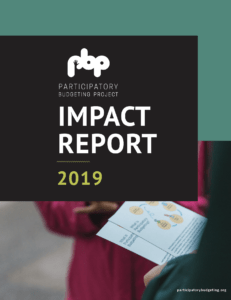All are invited to test drive the freshly renamed civil discourse digital platform, AllSides Connect, and give your feedback! For the next three days, August 18th, 19th, and 20th – NCDDers AllSides and Living Room Conversations are hosting the AllSides Connect “Hackathon”, and we encourage you to check it out! Folks may remember the platform by its’ former name, “Mismatch”. This platform is an opportunity to build connections and share conversation, which many of us are greatly in need of during these times of increased physical distancing due to the coronavirus. Read more in the post below and sign up here! Thank you so much to Kristin Hansen, Director of AllSides Connect, for sharing this announcement with us!
AllSides Connect “Hackathon!”
 AllSides and Living Room Conversations request your help! Please sign up for the AllSides Connect “Hackathon,” taking place this week – August 18th, 19th, and 20th.
AllSides and Living Room Conversations request your help! Please sign up for the AllSides Connect “Hackathon,” taking place this week – August 18th, 19th, and 20th.
What is AllSides Connect?
A realtime video platform that is purpose-built to foster civil discourse and dialogue across geographic distance and political, racial, faith-based, and other divides in America. AllSides Connect has been built collaboratively by Living Room Conversations, AllSides, and Bridge the Divide. AllSides Connect is intended to broadly serve and scale the bridging/dialogue/civil discourse field. (You might know the platform by its prior name, “Mismatch.”)
What’s the Hackathon, and how do I sign up?
Join the hackathon to experience online civil discourse, test drive the realtime video platform, and give the AllSides Connect team your feedback on the experience … all in 30 minutes or less!
Best of all, you don’t need to be a techie to “hack” AllSides Connect … non-techies needed!
All you need to do is sign up for one 30-minute slot on Tues Aug 18, Wed Aug 19, or Thurs Aug 20. Up to six people can sign up for each time slot.
Here’s the link to sign up: AllSides Connect Hackathon – Sign Up Form – Aug 18, 19, 20
What happens next?
Next, you’ll receive a calendar invite, a URL link, and some basic instructions about how to join your scheduled conversation. You’ll be joined with one or more other “hackers” to hold a short online conversation, with a built-in guide.
Thank you for helping these organizations to scale civil discourse, respectful dialogue, and empathetic listening across America!

 This event recognizes communities that leverage civic engagement, collaboration, inclusiveness and innovation to successfully address local issues. The All-America City Award shines a spotlight on the incredible work taking place in communities across the country. By celebrating the best in local innovation, civic engagement and cross-sector collaboration, the All-America City Awards remind us of the potential within every community to tackle tough issues and create real change.
This event recognizes communities that leverage civic engagement, collaboration, inclusiveness and innovation to successfully address local issues. The All-America City Award shines a spotlight on the incredible work taking place in communities across the country. By celebrating the best in local innovation, civic engagement and cross-sector collaboration, the All-America City Awards remind us of the potential within every community to tackle tough issues and create real change. 2019 marked a monumental year for PBP. Our organization turned 10 years old, helped launch or continue over 170 PB processes, and successfully transitioned our leadership to a national Black-led organization committed to equity.
2019 marked a monumental year for PBP. Our organization turned 10 years old, helped launch or continue over 170 PB processes, and successfully transitioned our leadership to a national Black-led organization committed to equity.
 The Kettering Foundation researches and develops issue guides, and the National Issues Forums Institute (NIF) shares the materials across the country along with the deliberative practices on which they are based.
The Kettering Foundation researches and develops issue guides, and the National Issues Forums Institute (NIF) shares the materials across the country along with the deliberative practices on which they are based.

 The Safety and Justice Challenge supported by the John D. and Catherine T. MacArthur Foundation has been working with leaders across the country to tackle one of the greatest drivers of over-incarceration in America – the misuse and overuse of jails. Since January 2018, Everyday Democracy has been providing community engagement technical assistance to the Safety and Justice Challenge network and has helped specific jurisdictions adopt and implement racial equity-driven community engagement practices.
The Safety and Justice Challenge supported by the John D. and Catherine T. MacArthur Foundation has been working with leaders across the country to tackle one of the greatest drivers of over-incarceration in America – the misuse and overuse of jails. Since January 2018, Everyday Democracy has been providing community engagement technical assistance to the Safety and Justice Challenge network and has helped specific jurisdictions adopt and implement racial equity-driven community engagement practices.
 We are currently hiring for a Communications and Program Coordinator to support our Your Voice Ohio media collaborative.
We are currently hiring for a Communications and Program Coordinator to support our Your Voice Ohio media collaborative.

